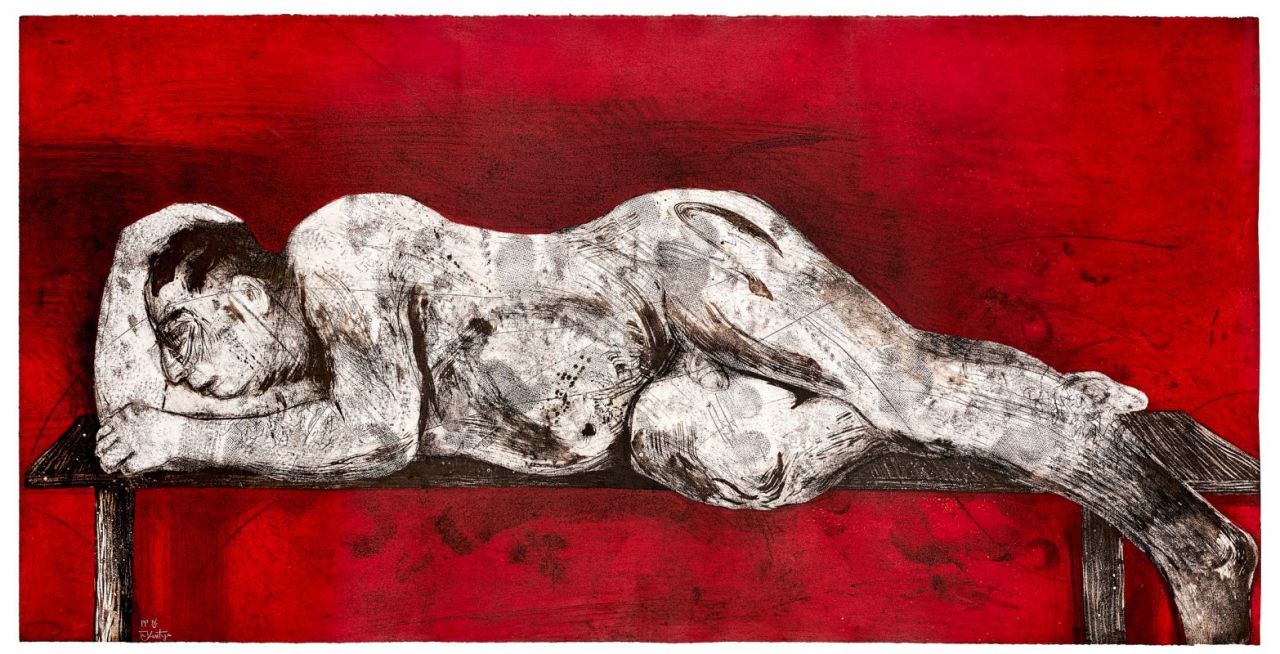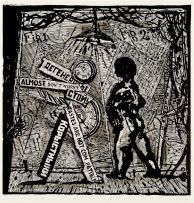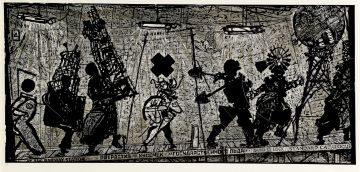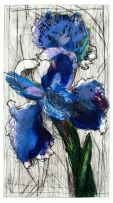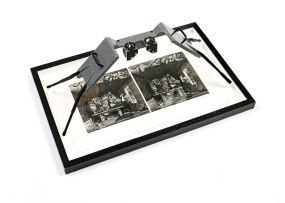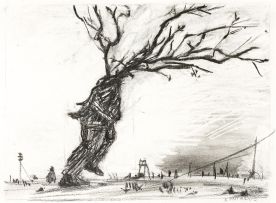Important South African & International Art, Decorative Arts & Jewellery
Live Auction, 14 March 2016
Session 4
Incl. Buyer's Premium & VAT
About this Item
signed and inscribed PP IV/V
Notes
Sleeper Red depicts a recumbent naked man rendered in black etched marks and set against a deep red background. The etching is unusually large in scale for an intaglio print. It is also atypical in the type and range of etched marks that have been deployed by the artist. In this regard Kentridge notes:
"With the first set of drypoints I had used a thumbprint and printed the heal of my hand to suggest the flesh texture… I wheeled a bicycle across the paper, hit it with a charcoal-impregnated silk rope, invited children and cats to walk over it, spattered it freely with pigment."[i]
As Kentridge is well known for his monochromatic work, such large expanses of colour are rare in his oeuvre. In those instances where colour has featured it has generally been confined to blue and red drawn lines subordinate to the dominant monochromatic form.
The viewer might recognize a reference to Kentridge himself in the figure, and this would be consistent with the manner in which the artist works with his own image as an alter ego, mostly stemming from his creation of the characters Soho Eckstein and Felix Teitelbaum in his early drawn animations.
Sleep has long been an important metaphor in Kentridge's work over the years and many have interpreted it as the inability to face the history of exploitation associated with apartheid and colonialism. Sleep has been a popular subject for international artists over time, and may have associations that are not obviously political. One thinks of Francisco Goya's, 18th century etching, The Sleep of Reason Producers Monsters.
However, Kentridge completed the etching in 1997 which emanated from his work on Ubu and the Truth Commission. This fact might account for the reason another version of the Sleeper series, Sleeper Black, forms such an important part of the Constitutional Court Art collection, assembled by Former Constitutional Court Judge Albie Sachs. In a review of the collection and through conversations with Sachs, Emile Maurice notes that:
"Reading as a universal statement on vulnerability and remorse, and rendered with great empathy, Kentridge's 'Sleeper' shows a corpulent, naked and prostrate man who, unable to face the world, seeks comfort and solace in his own arms."[ii] But Maurice later explains that one should not necessarily feel sorry for the subject, rather that it is a work about internal conflict, guilt and atoning for sins and excesses.
Its importance is confirmed by its inclusion in the Tate Modern Collection.
[i] Bronwyn Law-Viljoen (ed.) (2006) William Kentridge Prints, Johannesburg: David Krut Publishing. Page 66.
[ii] Emile Maurice, Supper with Sachs, [Online], Available: http://www.constitutionalcourt.org.za/site/artcollection/thecollection.htm [01/02/2016]
Literature
cf. Bronwyn Law-Viljoen (ed.) (2006) William Kentridge Prints, Johannesburg: David Krut Publishing. Another example from the edition illustrated on pages 68 and 69.
